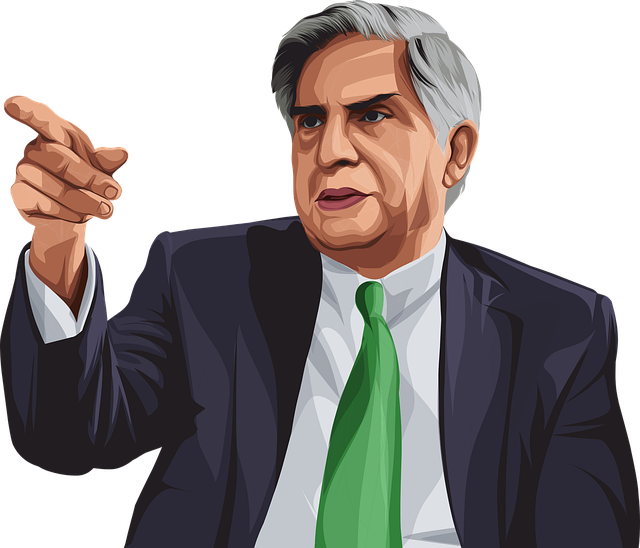Naval Ratan Tata is a well-known personality that needs no introduction. There is not a single person in India who has not heard this name. Many young entrepreneurs see him as a role model. He is a simple man with a big heart. Although he comes from a wealthy family, he never took power or wealth for granted.
Early Life
Ratan Tata’s father, Naval Tata, was the adopted son of Ratanji and Navajbai Tata. Naval Tata grew up in the J.Petit Parsi orphanage. Ratan Tata’s grandmother, Navajbai Tata, was a great admirer of his. Ratan Tata’s parents divorced when he was ten years old in 1940 and was raised by his grandmother.
In spite of turning into the future administrator of the Tata Group, he started his profession at the Tata Steel Division, where he worked closely with regular labourers. In 1971, Tata was named Director-in-Charge of the National Radio and Electronics Company Limited (NELCO), which was in urgent need of revival, and he effectively turned it around.
He assumed control over the Tata Group in 1990 and executed a progression of changes to modernize the gathering’s strategic approaches to contend effectively in the new period. During his time, he combined all Tata undertakings, bought various organizations, strikingly Tetley and Jaguar Land Rover, and listed Tata Motors on the New York Stock Exchange, bringing the organization global acknowledgement.
India obtained its first natively made vehicle, the Indica, and its first smaller vehicle, the Nano, during his administration. Goodbye’s Nano, the world’s most savvy car, was created when the organization became stressed over the security of family units going by bike.
Academic Life
Scholarly life and the youth years have a significant effect in moulding the character of an individual, thus it ended up being in Ratan Tata’s case. Ratan Tata did his initial tutoring in Mumbai. He studied at Campion School, Cathedral, and John Connon School in Mumbai. Soon after, he went to Shimla to learn at Bishop Cotton School.
For additional studies, Ratan Tata went to New York’s Cornell University in 1962 to concentrate on architecture and structural engineering. Furthermore, at that point, started his expert excursion of being a Tata as he joined Tata Group.
Ratan Tata was promoted to manager in the Tata group in the 1970s. Using his sheer skill and talent, he was soon able to transform the National Radio and Electronics Group (NELCO) company, which unfortunately collapsed during the Depression.
Business skills
Ratan Tata reduced the number of Tata Group companies from more than 300 to invest in new start-ups that showed growth potential. Ratan Tata is a true visionary in every respect. The Tata Group acquired several overseas brands to expand its reach. For example, Tata Tea acquired Tetley, a UK-based brand, in 2000 for $407 million. Tetley is sold as Tata Tea which is a product of Tata Consumer Products Limited. It is now sold in more than 40 countries worldwide.
He turned several companies under his supervision and garnered huge revenues. Tata Son’s businesses, from salt to software, grew into a $100 billion group under Ratan Tata.
On the initiative of Ratan Tata, Tata Motors acquired Daewoo Commercial Vehicles in 2004 for $102 million. It was the largest takeover of a Korean company by an Indian company. In 2007, Ratan acquired Tata Corus, an Anglo-Dutch steelmaker, for $12.2 billion. The deal resulted in TataCorus becoming the fifth largest steelmaker in the world.
Ratan Tata’s keen business acumen was demonstrated again a year later when Tata Motors took over two British car brands, Jaguar and Land Rover. This was a takeover with Ford that cost Tatas $2.3 billion. It was Ratan Tata who drove the entire acquisition. campaign and in 2017, JLR sales exceeded $34 billion.
In 2008, another feather was added to the leadership cap by Ratan Tata, who launched the Tata Nano, the world’s cheapest car. Nano was presented at an Auto Expo and became a case study topic in all Top B-schools around the world.
Vision
In the words of Ratan Tata, “What I would like to do is to leave behind a sustainable entity of a set of companies that operate in an exemplary manner in terms of ethics, values and continue what our ancestors left behind.”
Ratan Tata has strictly protected Tata’s brand image. Under his stewardship, Tata has always made headlines for all the right reasons. Tata is the largest retail brand that has greatly contributed to the growth and development of India. In one of his most recent unique ventures, Ratan Tata penned some insights into how business should be run post COVID-19. He did it to help thousands of businesses weather the sudden pandemic storm. Ratan Tata is truly an inspiration to the world and is admired by youngsters.




